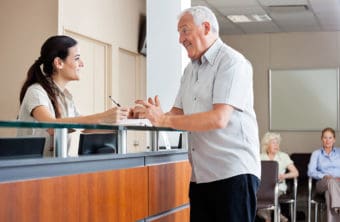Pharmacy Technicians work in a variety of institutional and ambulatory settings, but an emergency can occur anywhere at any time. It’s important to be prepared and know what to do in the event of a crisis.
First and foremost, pharmacy technicians should be CPR certified. This is required in most institutional settings and strongly recommended in retail settings. According to the American Heart Association, “Many people are afraid of performing cardiopulmonary resuscitation because they fear they’ll hurt someone. Do not be afraid. Injuries caused by properly performed CPR are rare. CPR, especially if performed immediately, can double or triple a cardiac arrest victim’s chance of survival. Your actions can only help.” Once you are certified, be sure to take the recertification courses to stay current (usually once every two years).
A Code Blue situation can happen in an instant, and can be very stressful and confusing unless you know exactly what to do. “When you place techs in code situations, their roles should be very clearly defined and understood by the entire code team. Your techs might be CPR certified but not ACLS certified. Techs cannot dispense medications or make judgments,” one user states on the Pharmacy OnceSource forum. Know your specific role in the event of a code. You may be the person designated to retrieve the crash cart or AED. If you are working in a retail setting, you may be in charge of calling 911 or directing the ambulance crew inside to the patient. You should be informed of your role soon after you are hired, during your orientation period. If you don’t know your role, ask!
The technician’s role isn’t over when the crisis ends. The crash cart or drug box must be checked, inventoried, and restocked. The AED must be cleaned and put away. And you may need to contribute to the incident report, particularly if you were the first person on the scene.
In summary, every pharmacy technician should know their specific role in the event of an emergency. Being prepared can make all the difference in your performance as well as your patient’s life!









